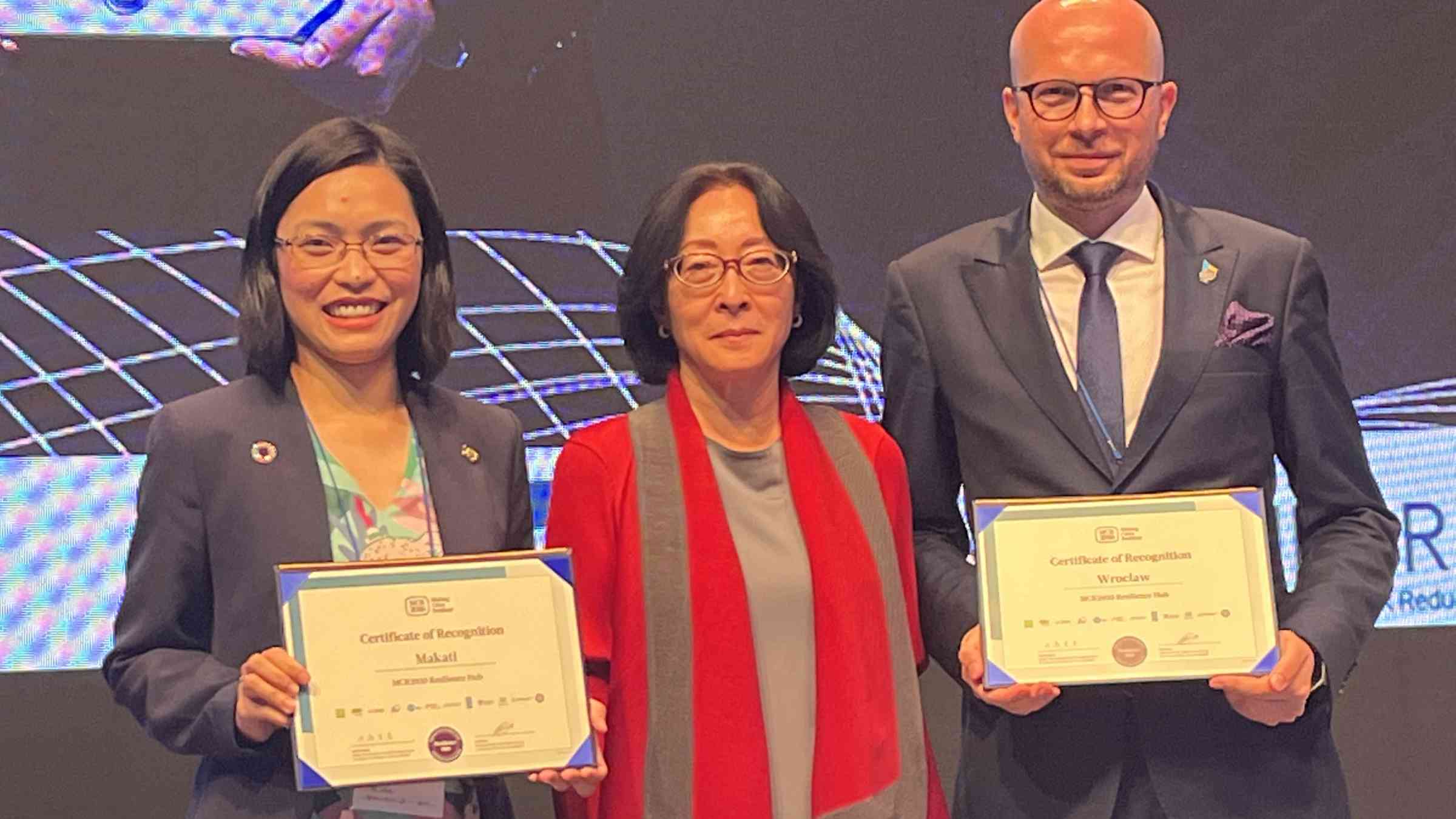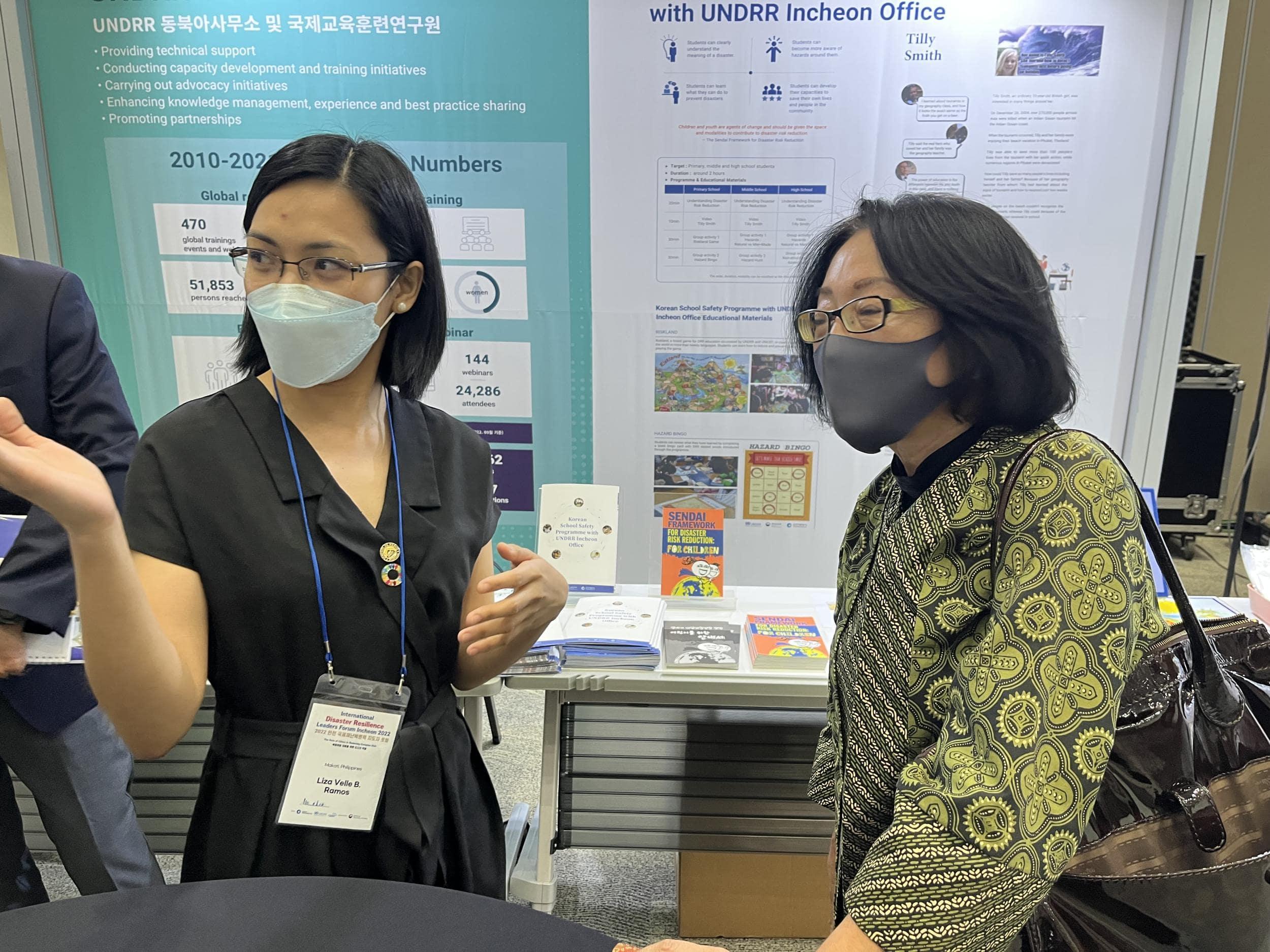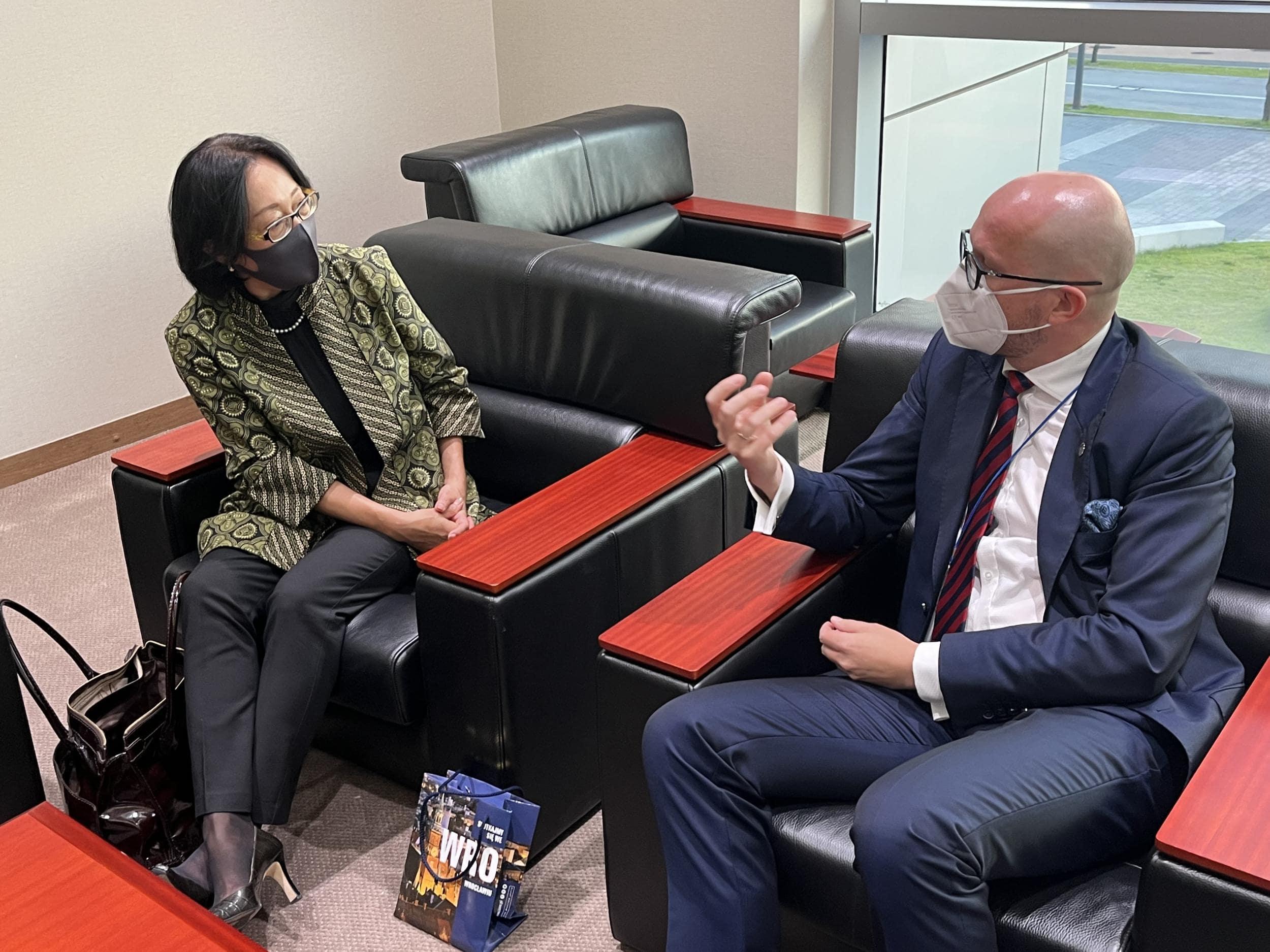Cities on frontline of risk recognized for resilience leadership

TWO city champions of disaster resilience were today recognized for their leadership and commitment to inspire other municipalities to scale up risk reduction actions.
Making Cities Resilient 2030 (MCR2030) acknowledged Wroclaw, Poland, and Makati, Philippines, as Resilience Hubs for their efforts to protect lives and livelihoods in the face of several significant challenges.
The Special Representative of the United Nations Secretary General for Disaster Risk Reduction, Ms. Mami Mizutori, highlighted how Makati is only the second city in Asia to become an MCR2030 Resilience Hub.
‘The city has been a longstanding leader on disaster risk reduction and has continued to demonstrate this leadership during the COVID-19 pandemic. Makati’s success will be a great example for other cities,’ Ms. Mizutori said.

Ms. Liza Velle B. Ramos, Division Head, Research and Planning, Makati, Philippines, said: ‘We are committed to sharing our disaster risk reduction practices within Philippines, the region, and beyond.
‘We will do this through our knowledge portals, city-to-city cooperation. We are also opening a DRR academy to support capacity building.’
Turning to Wroclaw, Ms. Mizutori praised the city’s ‘exemplary efforts’ to build a more people-centred, resilient, and sustainable future. ‘I would like to acknowledge how Wroclaw has dealt with successive challenges, including severe floods, the COVID-19 pandemic, and more recently the arrival of so many refugees from the war in Ukraine.’
Mr. Jakub Mazur, Deputy Mayor of Wroclaw said: ‘We know that to build effective, lasting resilience of the city, it is necessary to combine effective management with community engagement in various fields.

‘We learnt this during huge floods in 1997. We learnt it again during the COVID-19 pandemic. Now, with the arrival of refugees from the war in Ukraine, the importance of an all-of-society approach for disaster risk management is being reinforced yet again.’
The MCR2030 Resilience Hub certificate ceremony took place at the International Disaster Resilience Leaders Forum 2022, in Incheon, Republic of Korea, before senior representatives and technical experts from 23 countries.
Makati and Wroclaw join 13 other MCR2030 Resilience Hubs recognized for their leadership on disaster risk reduction both within their municipal boundaries as well as in support of other municipalities.
The United Nations-convened global network has mobilized 1,365 local governments, representing more than 386 million people, committed to strengthening their disaster and climate resilience. MCR2030 has also convened national governments, municipality associations, service providers, as well as 12 core partners that are a ‘who’s who’ of international organizations active on urban resilience.
Also featured on
Is this page useful?
Yes No Report an issue on this pageThank you. If you have 2 minutes, we would benefit from additional feedback (link opens in a new window).